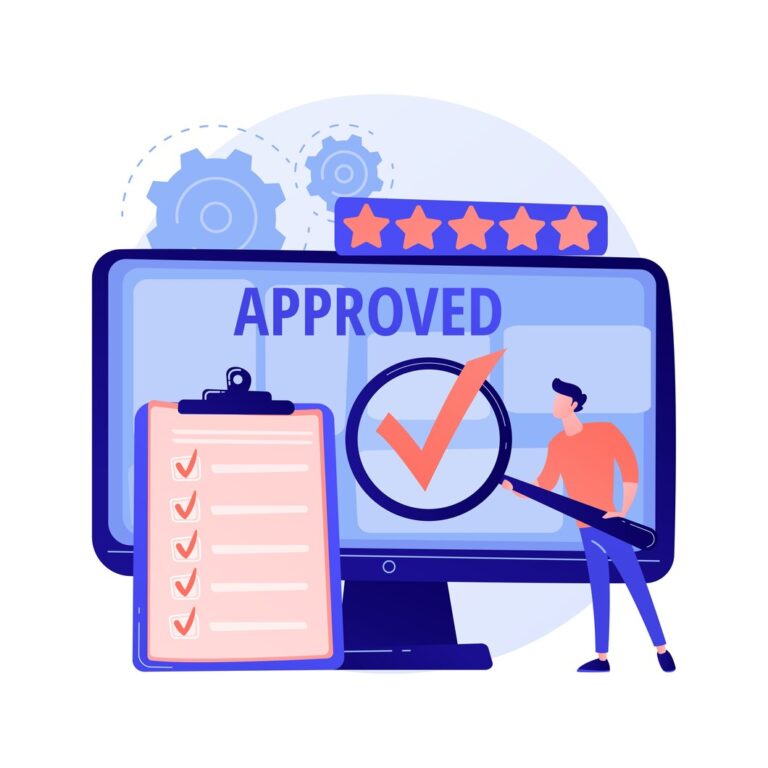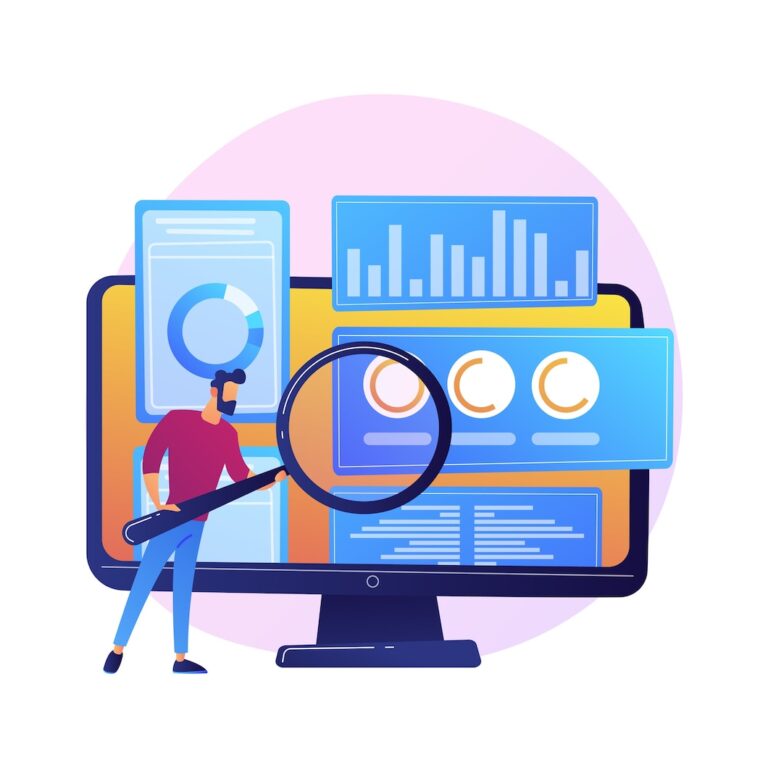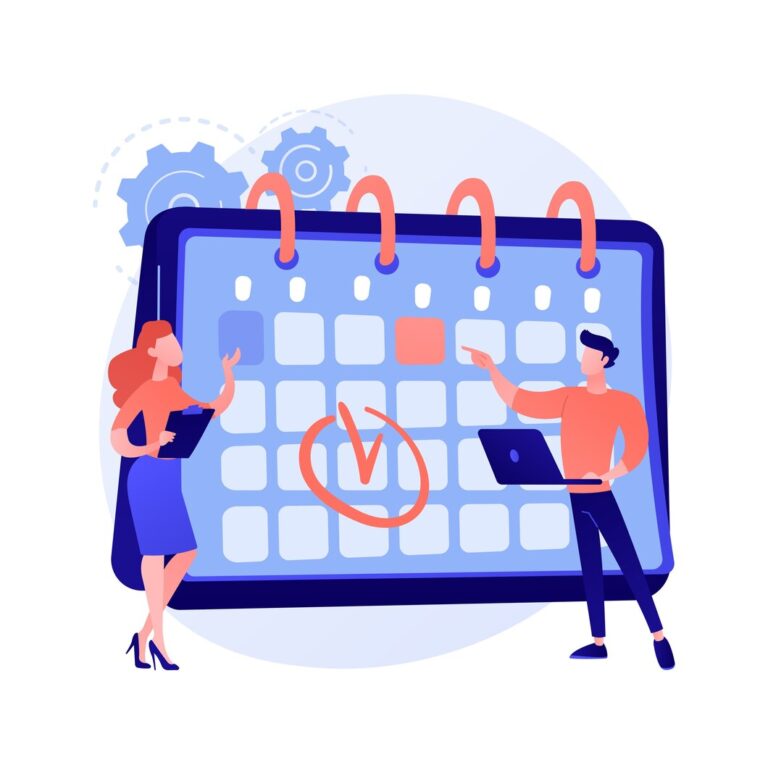Table of Contents
As you know, clear visibility into asset ownership, usage, and financial options leads to more informed, data-backed decisions. A structured business management approach helps streamline budgeting, minimise financial risks, and maximise overall value for the organization.
These days, when businesses heavily depend on technology to drive their operations, partnering with the right software vendor can be a ride-or-die. Whether you’re going for custom software or integrating off-the-shelf solutions, choosing the right vendor extends beyond feature sets and pricing models. Conducting a detailed audit is a chance to protect your business interests and ensure you’re making a well-informed decision for the long term.

What is a software vendor audit process?
IT audit process is a complex evaluation of a software vendor’s capabilities, processes, infrastructure, and overall ability to meet the specific needs of an organization. The purpose of such an audit is to assess whether the vendor delivers a secure, reliable, and scalable solution that aligns with your company’s goals and operational requirements.

As a rule, the audit covers various aspects of the service provided, such as compliance with industry standards and overall risk management practices.
Vendor audits help companies ensure compliance with licensing terms and highlight opportunities to optimize software use, leading to improved efficiency and cost savings.
While it may sound like an optional step, especially when a vendor appears credible on the surface, neglecting this due diligence could expose your company to substantial risks that may manifest later.
Why is the vendor auditing process really important in business?
It’s clear that third party vendors play an important role in an organisation’s success, so conducting software vendor audits offers several advantages:
- Software audits help confirm that vendors follow legal regulations, industry norms, and contractual commitments, reducing the risk of legal or reputational issues.
- Software vendor audits allow businesses to verify whether vendors consistently meet expected quality standards, ensuring that products or services meet customer needs.
- Software audits help uncover risks like fraud, data breaches, or operational issues, enabling companies to address these concerns proactively.
- Companies can identify cost-saving opportunities and negotiate better terms by assessing vendor performance.
The vendor and software audits may give you a clear insight into their operations and processes. As a result, you, as a client, can make well-informed choices about further partnerships and ensure these relationships support your strategic goals.
Vendor audits also assess compliance with ethical and social responsibility standards, particularly in the context of AI adoption. As organizations more often integrate AI into their operations, it is reasonable to evaluate how your vendors are implementing these technologies.

Mitigate risk
IT audit serves as a safeguard against potential risks. When you engage with a vendor without having a proper evaluation, you run the risk assessments of dealing with a provider that may not have the technical expertise or financial stability to deliver on their promises. For example, what if the vendor’s development team is not as qualified as they claim? Or what if the vendor lacks adequate cybersecurity measures, exposing your business data to breaches?
Addressing these issues before entering into a long-term contract can save your business from costly fixes or legal challenges down the line.
Ensure compliance and security
As data privacy laws, such as GDPR, HIPAA, and others, become more complex, businesses must ensure that their software vendor complies with relevant regulations. A software audit helps assess the vendor’s practices regarding data handling, storage, encryption, and access controls, ensuring they meet the necessary legal requirements.
For instance, failing to work with a vendor that meets compliance standards in sectors like healthcare or finance can lead to hefty fines, reputational damage, and a loss of customer trust. The vendor audit process allows you to verify whether the software provider follows industry-specific regulatory requirements, ensuring that your business remains compliant when using its solutions.
Evaluate financial health and longevity
An audit also examines a software provider’s financial health. Financial stability is a key indicator of whether the vendor will be able to support and maintain their software in the long term. If a vendor is financially unstable, you could face significant disruptions if they go out of business or cannot continue supporting their product.
Assessing financial stability through an audit helps determine if the vendor can continue operations over the lifespan of your contract. This ensures that you are not left scrambling for another provider at a crucial moment, risking downtime and loss of critical services.

Assess technical expertise and infrastructure
At this point, you need to ensure that the vendor’s development team is skilled enough to build, maintain, and scale the software according to your business needs.
An audit can involve reviewing the vendor’s software architecture, development methodologies, quality assurance processes, and post-deployment support systems. Is their software built on a stable and scalable architecture? Do they employ rigorous testing and QA processes? How quickly do they respond to technical issues or updates? These are the questions that a detailed vendor audit can answer, providing clarity on whether the vendor’s technical infrastructure aligns with your long-term goals.
In a nutshell, by auditing your software development vendor, you get a chance to evaluate, manage, and spot out any areas for improvement in existing processes or make a strategic decision to transfer to another service provider.
What are the key areas to focus on in a vendor audit?
Before starting an audit, it’s important to plan everything upfront. This means establishing clear goals for the audit, identifying significant risks related to vendors, and creating a timeline. Gathering essential documents such as contracts, quality manuals, and previous audit reports is a must for a thorough assessment. For larger datasets, many organizations might consider using statistical sampling to focus on a representative selection for closer analysis.

In the pre-audit stage, auditors take a close look at the vendor’s history and reputation. Additionally, auditors carefully examine the vendor’s performance history. They review past contracts, customer feedback, and any reported incidents or breaches. This examination offers important insights into the vendor’s capacity to fulfil contractual obligations and provide quality products or services.
When is the high time to conduct an IT audit?
Conducting software vendor audits is not a one-time event but a deliberate decision that should be revisited periodically throughout the vendor relationship. However, certain situations may indicate that it’s exactly the time to initiate an audit. Recognising these signs can help you proactively manage risks and maintain the integrity of your business operations.
Below are several scenarios that signal it may be high time to conduct an IT audit.
Initial vendor onboarding
When you bring a new vendor on board, an audit is a must. This initial review helps you assess the vendor’s capabilities, security practices, and compliance with regulations. It ensures that the vendor aligns with your organisation’s needs and values from the start.
Change in business needs
If your company undergoes significant changes—such as a new business model, expansion into new markets, or introducing new services—it may require an audit of existing vendors. This process allows you to determine whether the vendor can meet your growing needs timely and efficiently.
Significant contract renewal or extension
Conducting an audit is a good practice before renewing or extending a contract. This review assesses the vendor’s performance throughout the current contract period, including service delivery and quality of work. It provides an opportunity to evaluate whether the vendor still meets your expectations and whether the terms of the agreement should be adjusted based on your findings.
Decline in performance or quality
If you notice a decline in the vendor’s performance—such as missed deadlines or decreased product quality—this is a strong indicator that an audit is needed. Evaluating the vendor’s processes and quality control measures can help identify underlying issues that need addressing.
Vendor merger or acquisition
If your vendor undergoes a merger, acquisition, or significant organisational change, conducting an audit is inevitable. Such changes can affect the vendor’s service delivery and operational stability. An audit allows you to assess how these changes might impact your ongoing relationship.
Being proactive about conducting software vendor audits can safeguard your organization from various risks, ranging from compliance issues to security vulnerabilities. Establishing a routine for audits and remaining vigilant about your vendors’ performance and industry changes can ensure that your business interests are consistently protected over time.

What are the risks of neglecting a software vendor audit?
Once the audit is finished, the results are compiled into an audit report. This report details areas where the vendor complies, does not comply, and has opportunities for improvement. If you decide to proceed with the same vendor, it is reasonable to share this report with your service provider and work together to address any identified issues. Follow-up audits may be scheduled to confirm that the vendor has effectively implemented the necessary corrective actions.
In the post-audit phase, auditors conduct a thorough review of the findings. They evaluate the seriousness and possible consequences of any non-compliance issues that were discovered. Auditors may collaborate with the vendor to create suitable corrective action plans by prioritising these issues according to their importance.
They jointly tackle the non-compliance issues that were identified and implement needed improvements. This teamwork ensures the vendor fully understands the audit findings and takes active steps to improve their processes and practices.
Keep in mind that you can also carry out follow-up audits to check whether the vendor’s corrective actions have been effective. These audits help confirm that the identified issues have been properly resolved and that the vendor has put in place lasting solutions.
However, failing to conduct a software vendor audit can expose your business to a range of risks, including:
- Inadequate security measures by the vendor could lead to significant data breaches, exposing sensitive information of a specific business and customer.
- If the vendor is not compliant with regulatory standards, your organization could face fines, legal action, and reputational damage.
- A vendor with unstable financial footing may struggle to provide ongoing support, leading to service disruptions or software failures.
Eventually, without a proper assessment, you may end up with a vendor that cannot adapt to your business needs, offers poor customer service, or lacks the technical expertise for further development.
What are the practical steps for conducting a vendor audit?
To carry out an effective software vendor audit, consider the following steps.

Define your objectives
Before starting, clarify your audit objectives. What are the most painful aspects of the vendor relationship? Are you most concerned about security, compliance, or technical expertise?
Gather information
Request detailed documentation from your software development vendor, including financial reports, security policies, development methodologies, and compliance certifications. This information will form the basis of your audit.
Engage third-party experts
Consider hiring third-party auditors or consultants to assist with the audit, particularly if you lack in-house expertise in areas like cybersecurity or regulatory compliance.

Conduct interviews and site visits
If possible, arrange interviews with key personnel from the vendor’s team, including developers, security experts, and project managers. Site visits can provide additional insights into their operational environment.
Review the audit results
Analyse the audit results against your predefined objectives. Identify any red flags, and if necessary, engage the vendor in a discussion about how these issues will be addressed.
The final words
Conducting a software vendor audit is not an extra or a bureaucratic exercise, it’s rather a strategic need that can protect your business from a wide range of risks.
An audit empowers you to make informed decisions, building stronger partnerships while ensuring your organization is protected from potential pitfalls. Investing time and effort in this process up front can save your company from significant financial, operational, and reputational damage in the long run.

Altamira can audit tour IT vendors for you
There are times when customers outgrow their vendors or the other way around. We understand the importance of maintaining a smooth software development process. Using our established software vendor audit checklist and vendor transfer framework, we facilitate a transition or enhancement of current processes, ensuring consistency and reliability.
The software audit evaluates the reliability of your systems and the efficiency of existing disaster recovery plans. As a result, you can maintain business continuity and recover quickly in the event of a system failure or disaster.
In addition, for those with legacy systems, the audit provides a clear understanding of the potential risks associated with those systems. Eventually, you can formulate a modernisation or replacement strategy that balances cost, risk, and business continuity.
What challenges do we address during vendor auditing?
- Long response times and unreliable timelines
- Constant quality issues
- Lack of responsibility of the development teams
- Scope creep and project ownership gaps
- Knowledge retention and lack of documentation
- Unclear roadmap and blurry vision
If you lack the time or expertise to audit your software vendors, we can handle the audit. Our expert auditors can assist you by:
- Defining the audit standards, criteria, agenda, and checklist
- Coordinating and conducting the audit of your current software vendor
- Facilitating the opening meeting, discovery phase, and closing meeting
- Writing the audit report
- Meeting with you to clarify the audit report and discuss its implications.
Contact us for expert consultancy, and one of our expert will answer questions you have




